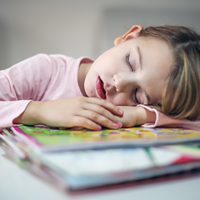Adolescents
-

How effective is medication for ADHD symptoms in children with ASD?
Clinically significant attention-deficit/hyperactivity disorder (ADHD) symptoms are common and impairing in children with autism spectrum disorder (ASD).1 Moreover, ADHD is the most common co-occurring mental health diagnosis driving increased rates of medication use in children with ASD.
Read more -

Do brain function abnormalities lead to substance use, or vice versa?
New research has, for the first time, investigated the direction of links between brain function and substance use throughout adolescence. Jungmeen Kim-Spoon and colleagues studied 167 adolescents who were assessed annually for four years from 13-14 years old.
Read more -

Do children with social anxiety disorder benefit from social skills training?
Social anxiety disorder (SAD) in children can be difficult to treat, as evidenced by the varied outcomes reported post-treatment.1,2 Although childhood treatments for SAD commonly involve at least some social skills training,3 it isn’t clear whether children with SAD have particular difficulties with social skills. There is therefore a need to better establish whether social skills are an effective target for treating SAD.
Read more -

Most popular ACAMH web content 2020
As 2020 draws to a close we have collated the most popular online content, from our website.
Read more -

Do ADHD and ASD symptoms have similar characteristics in childhood and young adulthood?
Lucy Riglin and colleagues in the UK have investigated whether ADHD and ASD traits in young adulthood show similar characteristics to those reported in childhood.
Read more -

Consistency is needed when measuring and reporting outcomes in child and adolescent anxiety disorders trials
This year, Cathy Creswell, Maaike Nauta and colleagues from around the world convened a series of international activities based around measuring and reporting in treatment trials for child and adolescent anxiety disorders.
Read more -

LGBT adolescents, sexting, and consent
The exact prevalence of sexting is still under academic debate. Yet the dominant discourses appear to associate it with adolescents; this association exists partially due to the media stories conveying negative consequences and moral panics regarding adolescent suicide cases as a result of sexting (Dobson, 2017).
Read more -

Does an internet gaming disorder prospectively predict psychiatric symptoms?
A minority of children and adolescents develop addiction-like engagement in gaming that is associated with impaired function.1 Preliminary data suggest that affected children with these symptoms, indicating an Internet Gaming Disorder (IGD), might present with more symptoms of common psychiatric disorders than those without an IGD.
Read more -

Insufficient sleep might affect children’s emotional health
Data from a new study published in the Journal of Child Psychology and Psychiatry suggest that insufficient sleep can affect emotional health in children. The study, conducted by Candice Alfano and colleagues, assessed the impact of sleep duration on different aspects of emotion in a cohort of 53 children aged 7-11 years old.
Read more -

Do CAMHS collect less PROM data from certain sociodemographic groups?
Patient-reported outcome measures (PROMs) are routinely used to inform clinicians and policymakers on clinical need and treatment efficacy. Yet despite their great value and utility, it seems that there is a low rate of outcome monitoring in Child and Adolescent Mental Health Services (CAMHS).
Read more